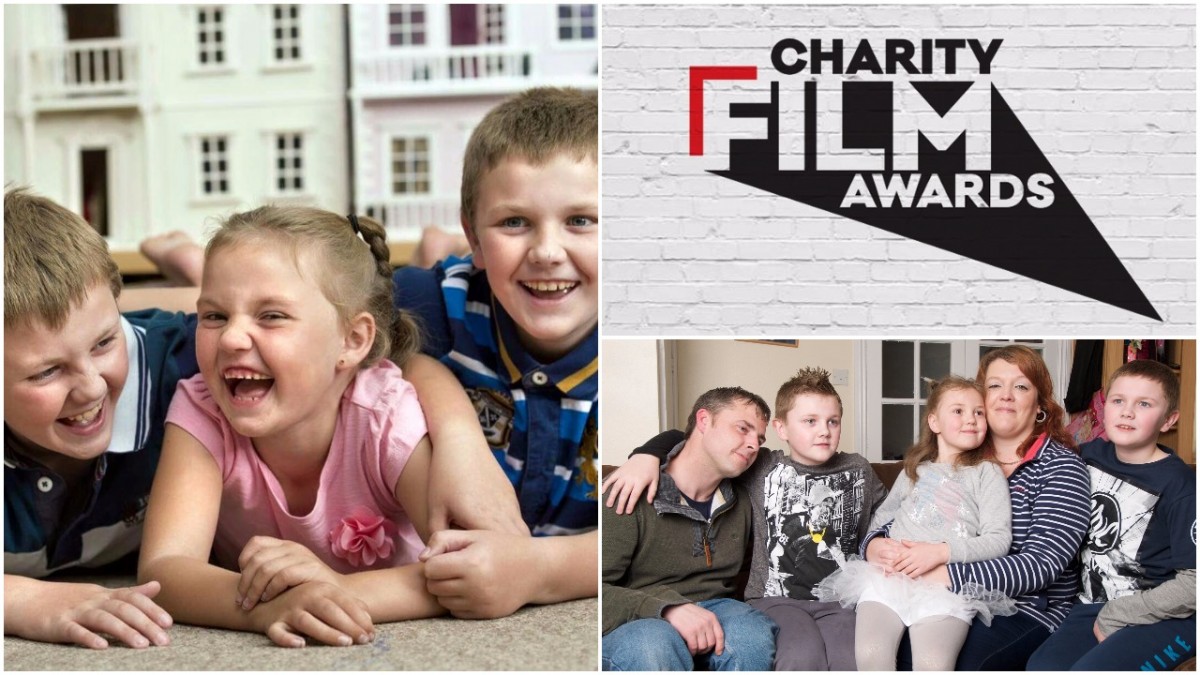Archived
Please note, this page may contain outdated information or subject matter.

A short film featuring a local family has been entered into the 2018 Charity Film Awards.
Children’s charity Action Medical Research worked with Jody Penn and Dee Evans to create a short film showing the devastating impact of juvenile Batten disease which, tragically, affects three of their children.
The five minute film highlights the potentially groundbreaking work taking place at Cardiff University, where researchers funded by Action are dedicated to working towards a treatment.
Juvenile Batten disease is a rare, progressive and life-shortening disease.
Like most people, Jody and Dee had never heard of the condition until doctors mentioned it as a possible diagnosis when their twin boys Toby and Corey, now 14, were undergoing tests for a range of distressing symptoms, including vision problems, seizures and behavioural issues.
To Dee and Jody’s shock, the diagnosis was confirmed and sadly it was later discovered that their daughter Izzy, eight, also has the disease. Amber, 12, is free from juvenile Batten disease but is aware that it will, one day, take the lives of her brothers and sister.
“You think it just can’t be happening to your children, it can’t be real,” says Jody. “But deep down inside you know it is.”
Children affected by juvenile Batten disease experience a wide range of symptoms including sight loss resulting in blindness, tremors, epilepsy, problems with balance and walking, behavioural and psychological issues and, as the disease progresses, difficulties with chewing and swallowing. And tragically, the disease is fatal.
There are some treatments which can help with some of the symptoms of juvenile Batten disease, such as seizures. But there is no treatment that can slow the progression of the disease, which is caused by problems with a specific gene and is an inherited neurodegenerative condition.
For Dee and Jody, the possibility of clinical trials leading to an eventual treatment means everything.
Funded by Action, Dr Emyr Lloyd-Evans and his team at Cardiff University hope to develop a treatment for juvenile Batten disease.
If the results of the three-year study are promising, this could lead to clinical trials in the near future and, potentially, the development of a treatment for this truly devastating condition.
This research will, Jody feels, give hope to families: “We know it will take time, and there won’t be a cure in our children’s lifetime, but we just hope that one day other families won’t have to go through what we’ve been through.”
The Charity Film Awards were created to celebrate the success of film in fundraising, to increase exposure of charity films and to encourage donations for good causes.
The inaugural Charity Film Awards, celebrated in March 2017, saw thousands of donations being made to charities that entered, and more than 65,000 members of the public viewing and voting for their favourite films.
Voting opens online on Friday, 27 October 2017.
** Ends **
Notes to Editors
- Voting is open from 27 October to 15 December 2017 – visit www.charityfilmawards.com
- The Juvenile Batten Disease film can be viewed here: http://www.charityfilmawards.com/videos/juvenile-batten-disease
- Hi res images of the family can be downloaded from the following links, please credit Ben Rector:
https://www.action.org.uk/sites/default/files/downloads/press/dsc_0011.jpg
Caption: Jody Penn and Dee Evans with their children twins Toby, Corey and little sister Izzy who all have juvenile Batten disease, plus daughter Amber (far left) who is not affected
https://www.action.org.uk/sites/default/files/downloads/press/dsc_0114.jpg
Caption: Jody Penn and Dee Evans with their children Toby, Corey and Izzy who all have juvenile Batten disease
https://www.action.org.uk/sites/default/files/downloads/press/dsc_0021.jpg
Caption: Izzy (right) who has Batten disease, with her sister Amber (left)) who does not have the condition
- Family support and information is available from the Batten Disease Family Association at www.bdfa-uk.org.uk. The support line is 0800 046 9832.
- Toby, Corey and Izzy are affected by CLN3, commonly known as juvenile Batten disease. Commonly referred to as Batten disease, Neuronal Ceroid Lipofuscinoses (NCLs) denotes a group of several different genetic life-limiting neurodegenerative diseases that share similar features.
- Dr Lloyd-Evans’s research is focused on abnormalities in calcium control in the body. He also plans to investigate the potential effectiveness of drugs called calcium antagonists, in the hope that they could offer the basis of a treatment for juvenile Batten disease. More information can be found at: https://www.action.org.uk/our-research/juvenile-batten-disease-could-widely-used-medicine-help-children-devastating-rare-condi
For further information on Action Medical Research:
Please contact Kate Lee, Research Communications Officer (Mon-Weds)
T: 01403 327478
Follow us on Twitter at @actionmedres and @amr_events
Like our Facebook page at facebook.com/actionmedres
Follow us at pinterest/actionmedres
Action Medical Research is a leading UK-wide charity saving and changing children’s lives through medical research. For 65 years we’ve helped pioneer ways to prevent disease and develop treatments benefiting millions of people. Our research has helped to beat polio in the UK, develop ultrasound, fight meningitis and prevent stillbirths. But we urgently need to develop more new treatments and cures for sick babies and children and we can’t do it without you.
Join our fight for little lives today.
Charity reg. nos 208701 and SC039284.
